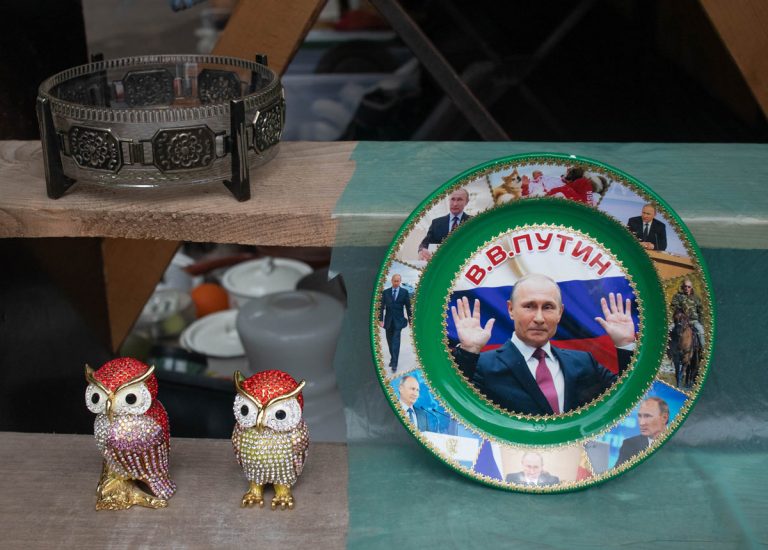Protests, poisoning and presidential corruption: what is going on in Russia?
Whether Russia is on the brink of a revolution or not remains uncertain, but recent protests are gathering momentum in making it very clear that Russia’s people are furious with its leaders. What is really going on? Here’s what we know so far.
On Sunday 31 January 2021, tens of thousands of Russians crowded the streets to demand the release of opposition leader Alexei Navalny, who was jailed in mid January after returning from Berlin, where he was recovering from a poisoning by a military-grade nerve agent in Siberia last August.
Alexei Navalny poisoning
Navalny was poisoned with Novichok, which is the name for a group of nerve agents created by scientists during the Soviet Union between 1971 and 1993. It is designed to kill quickly, and silently. The poison effectively kills, sometimes in a matter of minutes, by disrupting the communication between nerves and muscles as well as the brain. This results in cardiac arrest or asphyxiation as the final cause of death.
The last time Novichok made headlines was back in 2018, when former Russian spy Sergei Skripal and his daughter Yulia Skripal were attacked in the city of Salisbury in the UK. The pair were found unconscious on a park bench. Speculatively, Russia had been spying on the former double agent for at least five years prior to his assasination.
Russian protests
The protests are the result of current president, Vladimir Putin’s paranoia towards losing his position. As Sky News reported, “he cannot allow peaceful protest in the name of his arch-nemesis, Alexei Navalny, and that means his police will use batons, brute force and stun guns against entirely peaceful protesters.”
Putin has been in power for almost 21 years, and it cannot last forever. Navalny has been a long time critic of the president, and has risked imprisonment (or assasination) by going back into Russia to continue his fight to end Putin’s term. In the midst of the global COVID-19 pandemic, the country has suffered a drying up of foreign (and domestic) investment due to sanctions, among many other issues. In other words, Putin’s promise to make “Russia great again” remains a (familiar) phrase that reaps no prosperity, even after two decades.
The upcoming 2021 elections are bound to be in the spotlight, thanks to the media, which the country has somewhat dodged in the past, allowing Putin to continue without worldwide controversy. The Telegraph spoke to one of the many protestors, who stated that she had “had enough” with the government’s corruption. She added that “What we’re seeing right now is just a small fraction of those who are unhappy but they’re too scared to come out.”
Yulia, a 40-year-old protester in Moscow, told Aljazeera that she had come to the protests “despite having a panic attack the night before because of worrying about repercussions for taking part,” continuing that “I understand that I live in a totally lawless state. In a police state, with no independent courts. In a country ruled by corruption. I would like to live differently.”
The mostly young protestors chanted “Putin is a thief” and “Freedom for Russia.” Authorities are ramping up the pressure with arrests, these numbers amounted to 5,000 cases on Sunday 31 January, and aggression through desperation is not far off a description when watching any of the videos that have been posted online.
View this post on Instagram
Dayna, a student and protester who was detained last Saturday, 23 January, along with several friends, told the BBC that “We share one problem: the way we’re governed. We’re all protesting for one thing: the alternation of power.”
The Moscow Kremlin, which translates into “fortress inside a city” and is the government of the Russian Federation, similar to the the White House in the US, is unlikely to backdown on Navalny’s jailing according to what Tatyana Stanovaya, head of the political analysis firm R.Politik toldThe Telegraph.
Stanovaya explained that “Authorities see that they can jail people and not worry about higher numbers.” But “people are going to keep going out if they see that Navalny has been unjustly jailed and that other political prisoners are still in custody” added Alexei Venediktov, editor of the Ekho Moskvy radio station, speaking to the Russian Dozhd TV channel on Sunday 31 January.
What happens next will unfurl as it will, but because the innards of Russia are now being analysed by the rest of the world, including the US’ Secretary of State Antony Blinken, who condemned what he said was the “persistent use of harsh tactics against peaceful protesters and journalists,” and called for Navalny’s release.
Change might be forced to happen, finally—in this case, Putin might be ruled over by his own people, which hopefully, will be change for the better. Either way, corruption’s immediate predator is publicity, and thankfully, transparency is steadily growing, regardless of Russia’s past secret nature.





